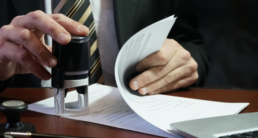September 18, 2019
Should You Pass on a Patent?
Sometimes a patent does not make business sense. It’s a conversation I have frequently with potential and existing clients, and after a brief discussion, drawing attention to important issues they should consider, they often arrive at the conclusion that it’s not worth it.
September 4, 2019
Pitfalls to Avoid When Collaborating on Intellectual Property
In many cases, IP collaborations take place out of necessity. Oftentimes, various firms work together to overcome hurdles of building prototypes and getting a project into production.
August 21, 2019
DIY Prior Art Search? Yeah, You Can Do That.
In many cases, IP collaborations take place out of necessity. Oftentimes, various firms work together to overcome hurdles of building prototypes and getting a project into production.
August 7, 2019
Selling Your Company? The Exit Strategy That Doesn’t Involve Giving Up Your IP Rights
Determining how best to monetize your intellectual property should take into account the IP owner’s desired goals and future plans. Before deciding on an exit strategy, understand the nature of the technology, the patent landscape, and the path towards continued success.
April 24, 2019
Cybersquatting: What To Do When Someone Is Holding Your Brand’s Domain Hostage
Just because someone else owns a domain with your trademark or brand name in it doesn’t mean it’s cybersquatting. Domain investing is permitted, so long is there is no bad faith intent, which can be a fine line.
April 17, 2019
What Lawyers and Clients Need to Know About the Use of Artificial Intelligence
Artificial intelligence as it is starting to be employed is certainly new technology. You have to be aware that it is essentially the proverbial “robot” doing stuff, not a person. There are going to be glitches. But, in one sense, we have always had automated systems doing “stuff” for us so it is not unexpected that these systems are making their way into the legal industry.
April 10, 2019
Keeping Competitors Away From Your Game-changing Product
Clients see a competing product with similar functionality to their own and immediately believe it’s a copy, even if the competitor developed the functionality independently. At that point, they don’t care how the attorneys deal with the situation — the attorneys are expected to find a way to shut down the knockoff.





